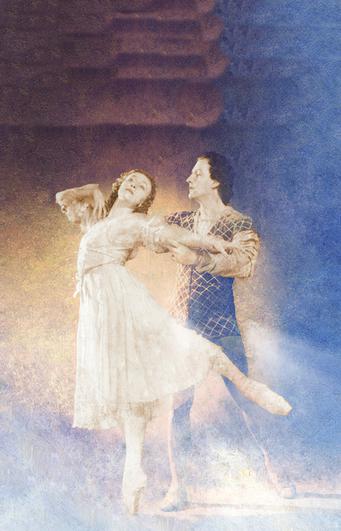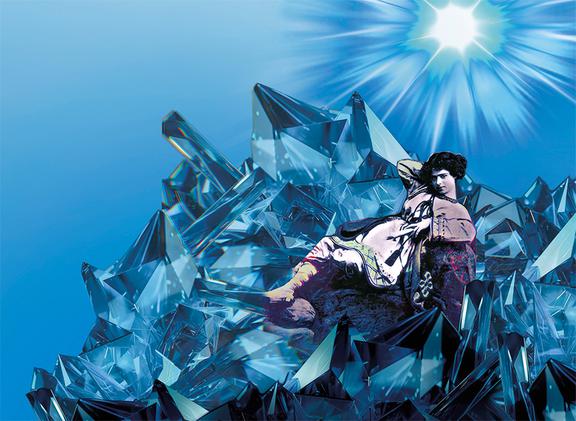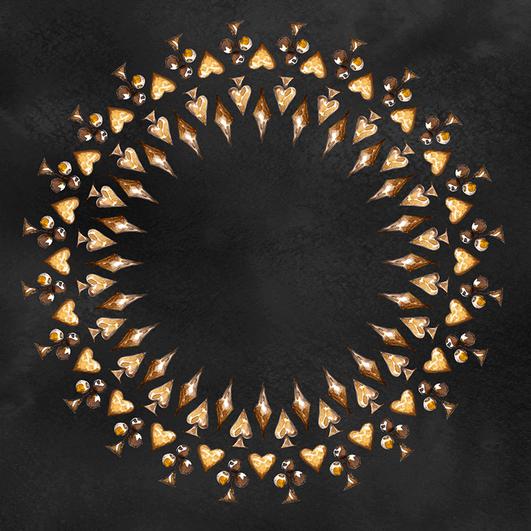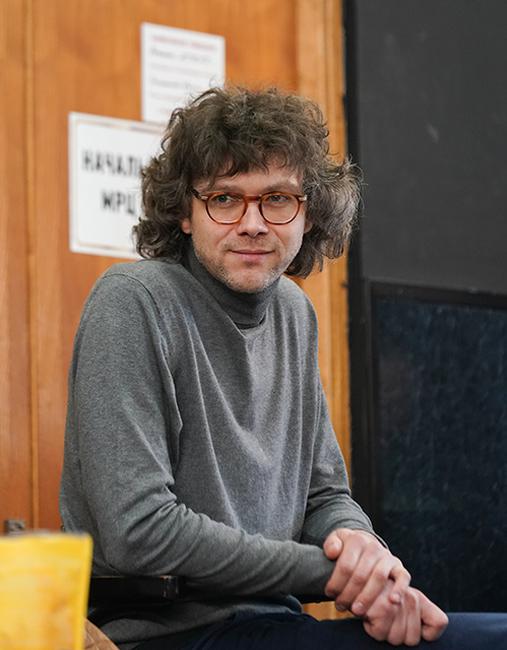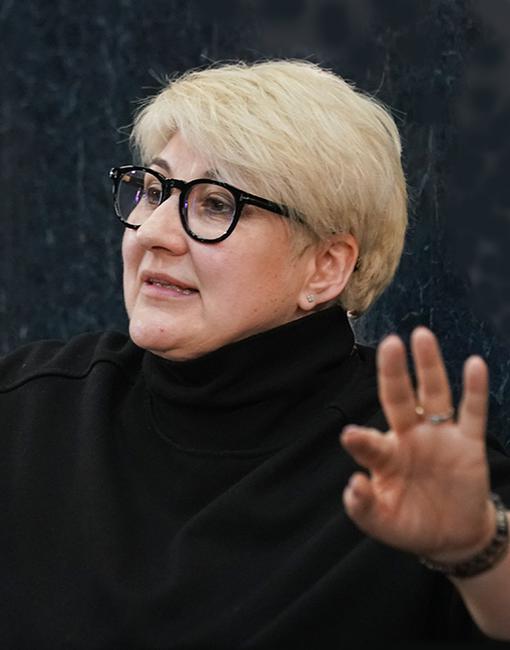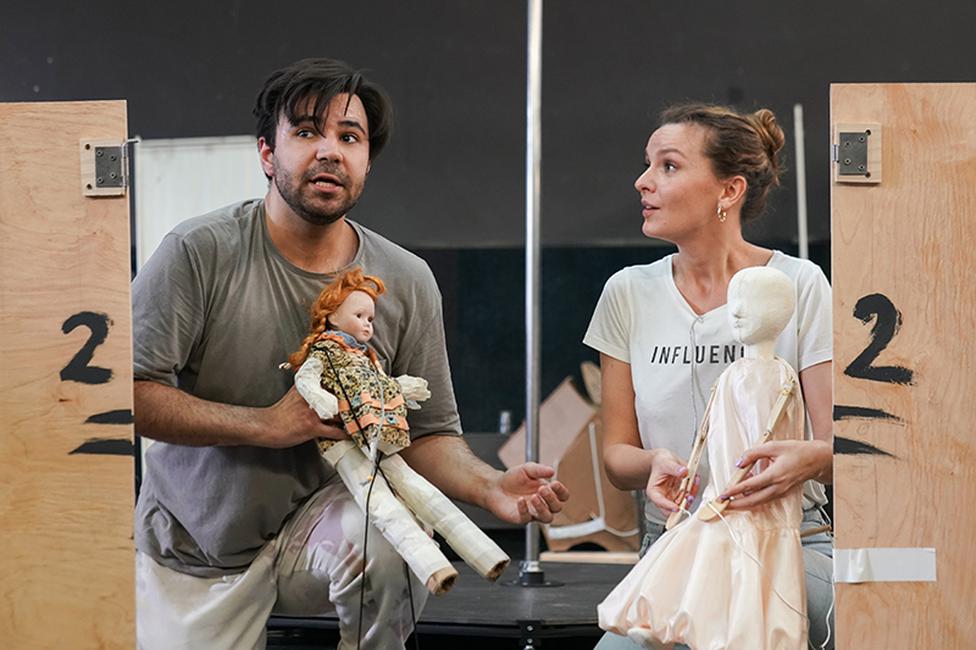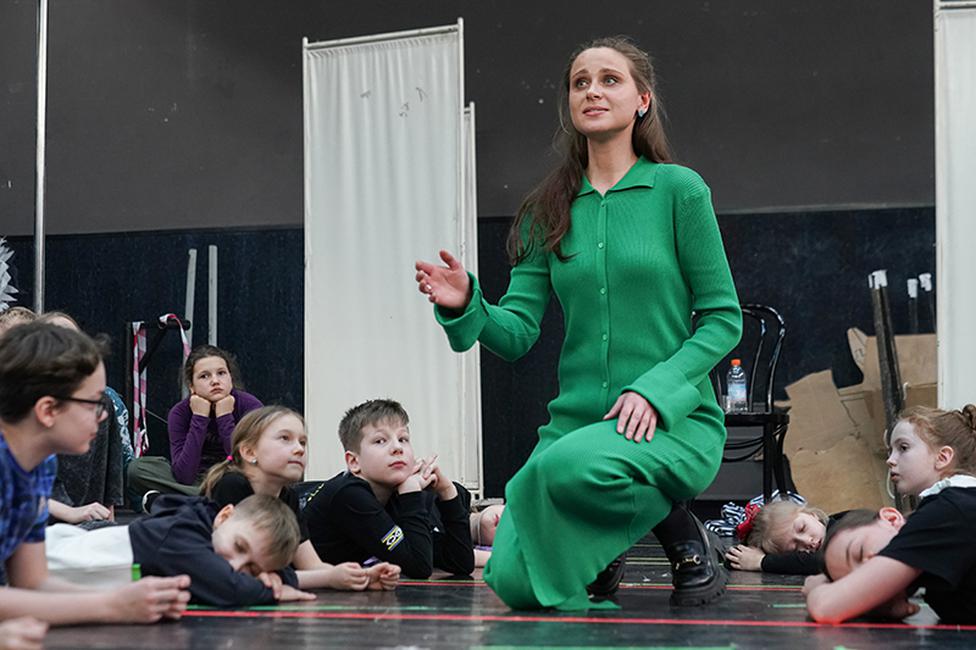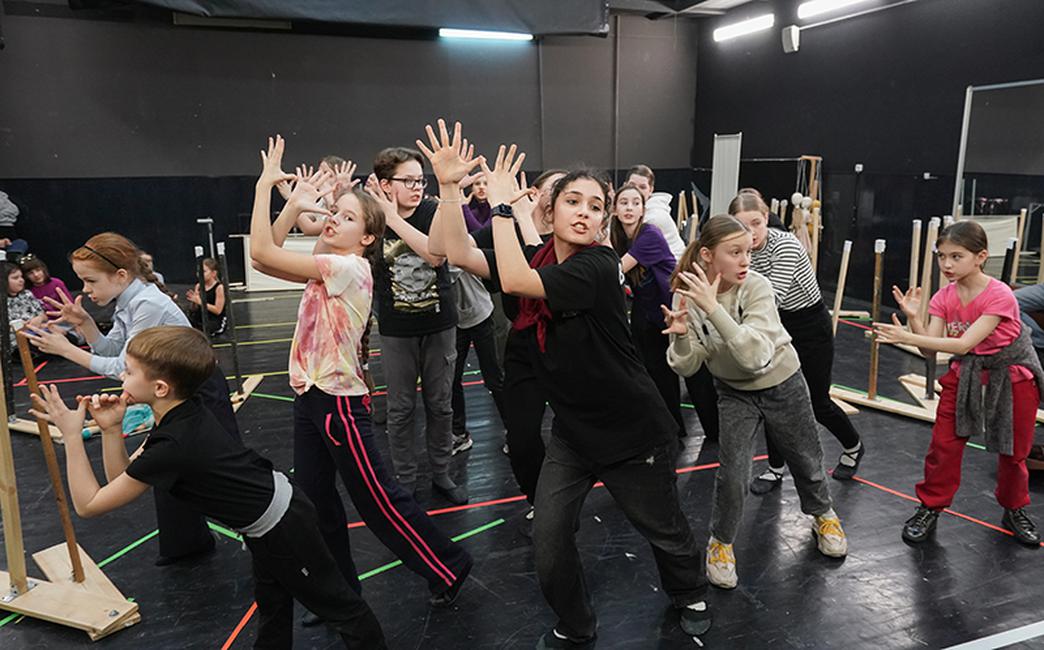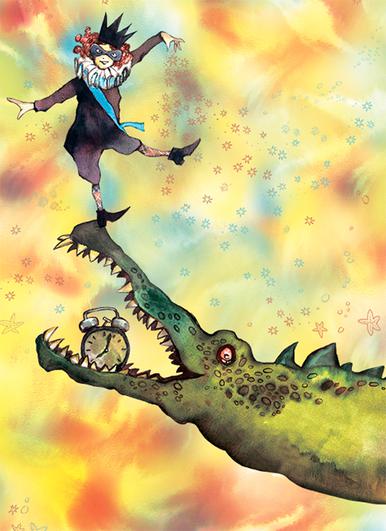
For many years now, the Chamber Stage has not missed the opportunity to bring joy to its young listeners, introducing them to the world of opera using accessible material specifically addressed to them and intended to capture their interest. Since 2008, the cheerful performance The Adventures of Cipollino based on the opera of the same name by Tatiana Kamysheva has been on stage season after season, and in 2016 — after some absence (the premiere was held in 1999) — it was also joined by the stage version of the famous symphonic fairy-tale, Sergei Prokofiev’s Peter and the Wolf, a classic example of an exciting theatrical interactive experience.
This season, the repertoire intended for children (along with their parents, of course) will be enriched by Andrei Rubtsov’s Peter Pan. Only the second production of the opera, it was written at the request of the Krasnoyarsk Opera and Ballet Theatre and began its stage life with great success several years ago. Peter Pan is no less famous all over the world than Pinocchio or Puss in Boots, but in our country, perhaps, a little less than in others. (Although James Matthew Barrie’s stories about Peter Pan were published in our country at the turn of the 60-70s of the last century, and in 1987 a musical television film was made based on them.) In the USSR, the attitude towards issues “suitable” for children’s literature was somewhat stricter than in Victorian England. The story of Peter Pan, a boy who did not want to grow up, is replete with magical adventures, which, however, are “paired” with the difficulties, that sooner or later, are presented to us all by real life: the difficult process of growing up, understanding the inevitability of saying goodbye to the world of childhood, the conflict between generations, child cruelty and the inevitability of the end.
But let’s leave the complexities of philosophy to the literary source and remember the old (1953), funny animated film by Walt Disney, no less popular than the book. Thanks to him, Peter Pan’s green suit and red hair became as recognisable as Pinocchio’s (Buratino) long nose. It was this image that inspired the creators of our performance.
Andrei Rubtsov, composer and conductor:
— Maria Tikhonova, the future author of the libretto (she wrote it in collaboration with Fyodor Busov), came to me with the idea of composing an opera based on the plot by James Matthew Barry. Peter Pan was her entire family’s favourite hero. I thought about this offer and agreed. However, I really asked my librettists to make significant changes to the plot. I wanted to preserve the outline of all events, including the ups and downs that befell the brave little heroes, but also to saturate the action with joy and a sense of inevitability... of the victory of the forces of good over all kinds of evil.
But the main thing that I thought needed to be done was to free the magical island from all sorts of reflections, thoughts about forsaken home, the need to return to the world of adults, that is, from the entire important, of course, philosophical component of the book’s epilogue. After all, we have so many other worries on this island: there is so much to see and do, first of all, to dance and sing them! After all, it is inhabited by lost boys, and mermaids, and pirates, and Native Americans.
Our orchestra, without exaggeration (well, almost!), is of Mozartian “scope”; it could play Le nozze di Figaro, for example. But on the small stage we have accommodated soloists, a mime ensemble, an adult choir and, of course (and this is also the main point), a children’s choir. They play the roles of the lost ones — Peter’s main friends on the magical island.
I really like all three Peter Pans: they are the soloists of the Chamber Stage, Valery Makarov and Ruslan Babaev, as well as Roman Kollert, an artist of the Bolshoi Theatre Young Artists Opera Programme.
Indeed, my opera is written for children. But this really does not mean that adults should be bored at our performance. Children’s opera is like children’s medicine: it is intended for children but can be taken by adults too!
Nina Chusova, director:
— Even though this is not the first time I am staging a children’s production, I still want everything at once. A child also wants everything at once: if they are truly passionate about a game, there are no boundaries for them, all their desires and ideas must be realised. To convey this, I think we have found a very interesting move: adults play children who play with dolls. They imagine themselves in a fictional country where mermaids and pirates live. This is a performance-game.
Reality and unreality are closely intertwined in it. At first, children are dolls, and when they end up in Neverland (or on the island of Somewhere), they become people. The entire space around them is doll-like, but at the same time real. Any painted or paper flower is real. We have both flashbacks in the form of animation and living space: rags suddenly come to life and become waves. Thanks to the multi-genre nature of the performance, any miracles are possible. Everything comes to life exactly the way it does in the dreams and fantasies of a child.
The production involves circus performers and even puppets. The function of the circus is to show that everything is possible — jumping, balancing, climbing, and crawling. Thanks to the director of circus numbers Andrei Koltsov and the artists with whom he works, our small stage is successfully turned into a large fairy-tale playground where you can do everything that comes to mind. And we, grown-up uncles and aunties — members of the production team, are simply implementing these ideas.
When we decided to include puppets in the action, I initially thought it was a crazy idea because we didn’t have artists who could easily and freely control them. In our case, the opera soloists themselves manage the puppets and simultaneously perform their parts. It’s touching that they work with the puppets on their own: they look for movements of arms and legs for them, talk and get close to them. An incredibly interesting work has been done. And, most importantly, controlling the puppets turned out to be a fantastic exercise in coordination, because the movements of the puppets do not always coincide with the rhythm of the vocal melody. We don’t stand still for a single second. We always play some game.
Our set designer Viktor Platonov became famous as a specialist in puppet theatre. He suggests many solutions based on the subtleties and unique features of this genre. Movement director Igor Sharoyko (Sharøyko) works in a structured and strict manner, but his approach appealed to child artists: they like to see the result. We generally have a wonderful team. Andrei Rubtsov and I have known each other for ten years: we met at the production of Lysistrata at the Moscow Theatre of Satire, where he was just starting to work (Andrei Rubtsov is music director and conductor of the orchestra of this theatre — ed.). He is a very talented, versatile, subtle and demanding musician and person. Evgenia Panfilova, our costume designer, has created absolutely unique costumes that an artist cannot simply put on and go on stage: to create an image, you need to “grow together” with the costume and learn how to move, following its “instructions”. These costumes themselves (and in themselves) carry some information.
Of course, the work has not been easy. The soloists were required to “prove” every second that they were children. And children don’t sit still, they always want to play something. And to my surprise, everyone happily agreed. And everyone had fun! I like it that we have created this performance, indulging in laughter and fun.
A pop-up book has been living in my head since childhood. You open it and see three-dimensional houses, trees, palaces... You look at it, get carried away and receive a colossal amount of information about what is happening in this story. The production also has this pop-up principle: the scenery keeps turning into a forest, then into the sea, then into a lawn, then into a house, then suddenly we are flying away into the sky...
This performance is an adventure, and we definitely won’t let our audience get bored for a single second. After all, what do children need? Experiences. They are the ones that create the foundation for later life.
The premiere series of performances will take place on the 25th — 28th of April. And not Somewhere, but on the Chamber Stage of the Bolshoi Theatre!
